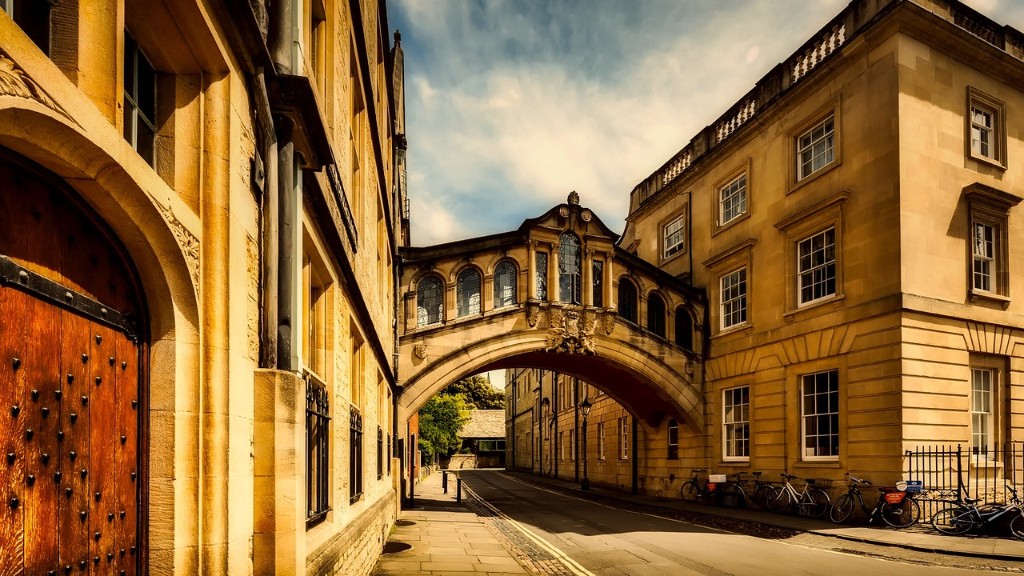What is the Difference Between the United Kingdom and Great Britain?
The United Kingdom (UK) is an independent nation situated off the northwestern coast of Europe. It comprises of England, Wales, Scotland and Northern Ireland. Together, these four territories form the state of the United Kingdom. Great Britain, on the other hand, is an island located in the Northern Atlantic Ocean to the northwest of continental Europe. It consists of England, Wales, and Scotland, but not Northern Ireland.
The terms United Kingdom and Great Britain are often mistaken to mean the same place, but there are important differences between the two. The name “United Kingdom” is often used to refer to the whole country, while “Great Britain” is used to refer to the island consisting of England, Scotland, and Wales.
Historical Context of the Terms
The United Kingdom was created when Ireland was joined to England, Wales and Scotland in 1801 with the Act of Union. Later, in 1922, the Irish Free State was formed following the Irish War of independence. This left the UK as only the countries of England, Wales, and Scotland. While the country became known as the United Kingdom, the geographical island that the UK was located in was still referred to as Great Britain.
The distinction between the two is an important one. Many political, economic, and social activities are managed independently by each of the countries that UK is made up of, such as education, criminal justice, and taxation. On the other hand, the unified island of Great Britain is a single unit with a single government, economy, and culture.
Geography
The United Kingdom includes the island of Great Britain as well as other islands such as the Hebrides and the Isle of Man. It has a total area of about 243,610 square kilometers. Great Britain is located to the east of Ireland and has an area of about 209,331 square kilometers. It comprises of England, Scotland and Wales. England is located to the south of Scotland and to the east of Wales, Scotland is to the north of England, and Wales is to the west of England.
The UK is composed of over 5,000 islands. The largest islands, besides the main islands of Great Britain, are the Isle of Wight, Anglesey, and the Isles of Scilly.
Differences in Political Systems
Although the UK has a unified government, each of its countries has its own distinct system of governance. England, Scotland, and Wales each have a devolved government which gives them a high degree of autonomy, and Northern Ireland has a fully independent government. Each country has its own individual legal system; the English and Welsh use a common law system, Scotland uses a mixed legal system, and Northern Ireland has a combination of the two.
In addition, each country has its own administrative and legislative branches. England, Wales, and Northern Ireland have an individual parliament, and Scotland has its own devolved parliament. The UK Parliament in London is responsible for matters that affect the entire country, such as foreign policy, taxation, defence, and international trade.
Symbols of National Identity
The two terms also have different national symbols associated with them. The UK’s national symbols are the Union Jack, the Tudor Rose, and the National Anthem (God Save the Queen). Great Britain’s national symbols are the Saltire (the Scottish flag), the Red Dragon of Wales, and the Tudor Rose.
The countries have also adopted different sports. The UK’s official sport is cricket, while Great Britain’s national sports are football, rugby, and shinty.
Cultural Practices and Traditions
The UK has a wide array of cultural practices and traditions. Its four countries each have their own distinct customs and traditions, such as the Welsh language, the Edinburgh festival, the Highland Games, and the Belfast City Hall. Great Britain, however, is often seen as having an overarching culture, consisting of English, Welsh, and Scottish traditions.
The UK is home to a diverse range of people from different ethnic and religious backgrounds. This diversity is reflected in the local languages, cuisine, and music. English is the main language, but other languages such as Welsh, Scottish Gaelic, and Ulster Scots are also spoken in the different countries.
Economy
The UK is one of the largest and most powerful economies in Europe. It is the 4th largest economy in Europe by GDP and has the 19th largest economy in the world. Great Britain’s economy is also large and powerful. Its GDP for 2018 was estimated at £2.3 trillion, making it the 4th largest economy in Europe and the 14th largest in the world.
The UK’s main trading partner is the European Union (EU). The UK is part of the EU’s single market and customs union, which allows goods and services to move freely between member states. Great Britain is also a member of the EU and participates in the free movement of goods, services, and people.
Impact of Brexit
In 2016, voters in the UK voted in a referendum to leave the European Union. This decision will have a significant impact on both the United Kingdom and Great Britain. When the UK officially leaves the EU, it is likely that the single market and customs union will no longer apply to the UK. This will mean that the UK will need to negotiate new trading agreements with the EU and other countries.
The Brexit process could also have an impact on the relationship between Great Britain and Northern Ireland. The border between the two countries is currently open and customs checks are not required. However, after Brexit, a “hard border” may be imposed, meaning that people and goods will need to be checked and border controls may be introduced.
It is also possible that the UK may no longer be part of the European Court of Human Rights, which could have repercussions for human rights in the country. Furthermore, without EU funding, the UK government may have to cut public services in order to make up for the loss of funding.
Impact on Immigration
The UK is also likely to impose stricter immigration rules after Brexit. Currently, the UK has freedom of movement between the European Union which enables people to move freely between the countries. After leaving the EU, the UK will likely introduce immigration controls which could make it difficult for people to move between the countries.
The Brexit process could also have an impact on the UK’s relationship with its other Commonwealth countries. Currently, the UK has visa-free travel between the countries. However, after Brexit the UK may introduce visa requirements for certain Commonwealth countries, which could make it more difficult for citizens of those countries to visit or live in the UK.
Final Thoughts
The United Kingdom and Great Britain are both countries with common history and culture. They have different political systems, national symbols, cultural traditions, and economies. The UK is composed of four countries, England, Wales, Scotland, and Northern Ireland; Great Britain consists of only three countries, England, Wales, and Scotland. The Brexit process is likely to have a significant impact on both the UK and Great Britain, and will have implications for immigration, trade, and human rights.





